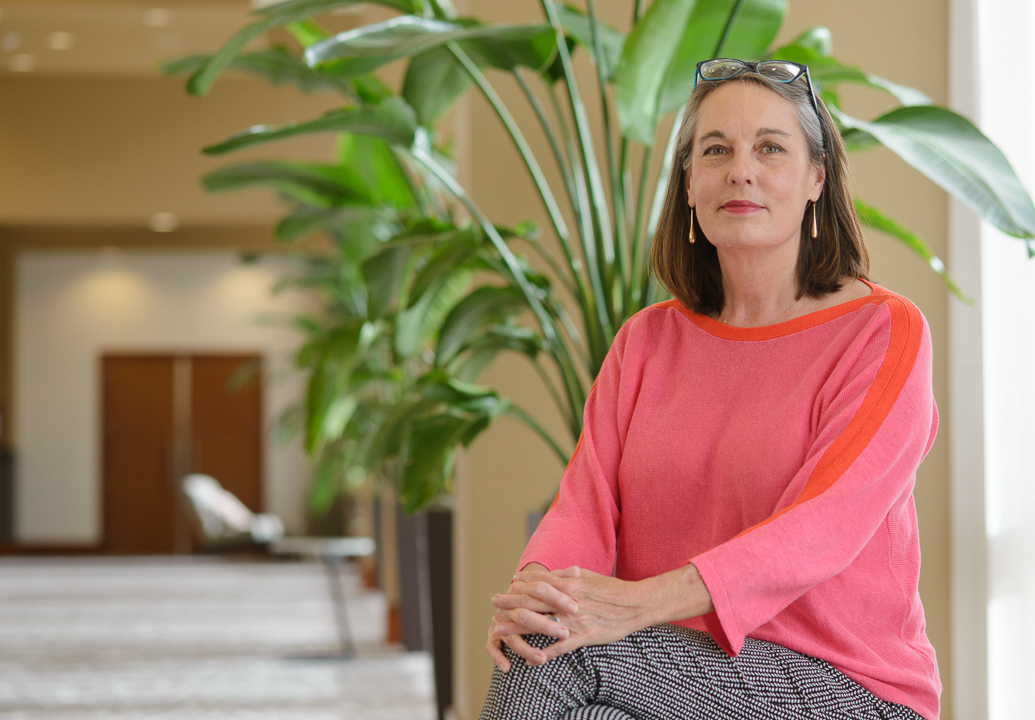
meet Annette
Annette Simmons has travelled internationally while working with government, business, religious, and educational organizations. Her ability to deliver practical, easily implemented solutions when groups were antagonistic or deadlocked has gained her an international reputation in group dynamics.
Simmons is gifted in the practical magic of collaboration that arises when we share our stories. Her third book, The Story Factor, in its third printing, is considered by many to be a classic. This new book, Drinking From a Different Well, offers a way to create dynamic and unprecedented change in the way we have structured our society, a change that could save us all from global warming, poorly implemented artificial intelligence, or the spread of pandemics. She currently resides in Raleigh, NC with her partner Chris Jones.

Mission Statement
I confess, I’m not as interested in increasing the bottom line as I am in finding ways to sustain many bottom lines that will support as many people as possible.
That puts me at odds with the cherished assumption that business is all about doing more with less — specifically less people. Because I like people, I want to improve people’s lives and save the environment at least as much as I want to increase profit.
And I’m not a nut. I know we need to protect the success of the organization. But I trust that all the metrics, quantitative analysis, and algorithms that exist solely to show how to do more with less aren’t going away. And they don’t need to, but we do need to embrace a new paradigm where people count as much as numbers. And we do that through sharing our stories.
Storytelling is a form of generosity vital to collaboration. When people are forced to be transactional it kills the magic of growing faith and trust by showing faith in others without demanding quid pro quo payback. The most inspiring stories narrate self-sacrifice, helping without pay back, showing good faith, and illustrating moral norms. We don’t build trust when the terms and conditions of connecting include multi-page inventories of all that might go wrong. Every set of terms and conditions I’ve read told me a rather dark story of distrust and selfishness.
Two years ago, I started coming clean about my concerns about the ethics of those who want to learn storytelling in order to control narratives rather than engage multiple narratives. Not surprisingly, most businesses who called me decided to hire someone else after I started talking about the ethics of storytelling. Learning the ins and outs of storytelling is like going to magic school. I think any teacher who doesn’t show students about the dangers of dark magic is being irresponsible.
One of the blessings of being up front about my “secret mission” is that some of the businesses who call are even more interested than before. My newest book will be coming out in paperback and audio form this October. The book articulates how competitive narratives tend to treat collaborative narratives like competition. “Drinking from a Different Well: How Women’s Stories Change What Power Means in Action,” taps into the genius of women’s narratives about power, the way men misunderstand female contexts, as well as a coherent way to blend male and female power in the workplace to redefine success in a way that protects people, profits, and the planet.
Gendered narratives represent preferences not competencies. Sexual dimorphism suggests that when evolution must protect a paradox (protecting us AND them) nature/nurture often splits the difference by ensuring both matter — but in different degrees. Protecting “them” is a bit more important to women and protecting “us” is a bit more important to men.
When women end up in positions that don’t offer enough power to protect “them,” we feel powerless and evade promotions that will only make it worse. The term moral distress explains a lot about why women leave positions of power. If we don’t have the power to do the right thing, it makes us feel powerless.This is not just women, of course; anyone who prefers collaborative narratives over competitive narratives ends up being treated like the competition when it comes to control and power. It’s one of the things that I’m working on right now.
How do we blend both competitive and collaborative narratives? What needs to change in the way we make decisions? How do we deal with our own hypocrisy? I include myself. Only by investigating the difference between what we say we want (safe planet, healthy people, etc.) and what we actually do to achieve it (I don’t compost for instance) can we figure out how to close the gap.
Check the blog and make your thoughts known!
Drinking From A Different Well: How Women’s Stories Change What Power Means in Action is out on Amazon and Audible October 2021.
